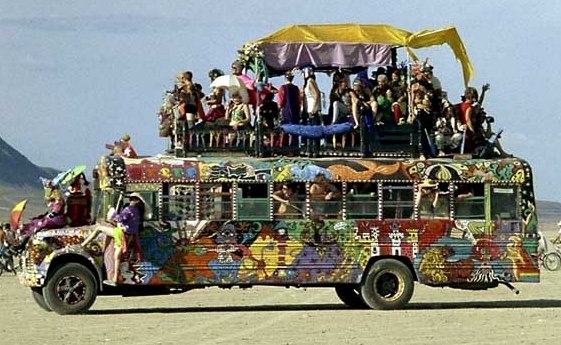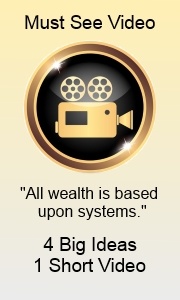A business organization is a group of people brought together for the purpose of finding, serving, and keeping customers. The best organizations invariably hire the best people to achieve this purpose.
In his book, Good to Great, Jim Collins writes, “Those who build great companies understand that the ultimate throttle on growth for any great company is not markets, or technology, or competition, or products. It is one thing above all others: the ability to get and keep enough of the right people. GET THE RIGHT PEOPLE ON THE BUS FIRST, AND THE WRONG PEOPLE OFF THE BUS, THEN FIGURE OUT WHAT DIRECTION TO DRIVE THE COMPANY.”

Who are the right people and how do you get them?
There are essentially two types of people that most entrepreneurs will hire at some time. I would characterize them as “plow horses” and “racehorses.” The plow horses are the people that you can count on to follow the established systems of your business. From planting to harvesting, they perform the routine work in a consistent and remarkable way.
The racehorses are the leaders and innovators who set the course the company will take. They are hard-charging thoroughbreds with an eye on the winner’s circle. A growing business needs both types of people.
The entrepreneur often begins as a racehorse with a plow attached. If he creates a successful business model and not just a job for himself, his company will grow. He will soon need to hire other people.
Plow Horses Excel At Routines
Smart business owners blueprint their business and begin establishing business systems that produce consistent and measurable results—financial systems, marking systems, customer care systems, and so forth. They understand that good systems run the business and they can hire non-expert and less expensive people to run the systems—the plow horses.
Plow horses are easy to train. You can quickly teach them to follow the rows—your documented systems and procedures. If performance is lacking, you tweak the system or replace the individual, with little effect on your business.
Without systems, you must employ higher-skilled and more expensive people. Job satisfaction also tends to be lower, resulting in a costly turnover. Using business systems, plow horses are able to produce desired results every single time, even when you are not around. Your business runs profitably, efficiently, and flawlessly, all by itself!
Race Horses Get You Into the Winner’s Circle
The racehorses are a special breed of people: they are executives and managers who are born to excel at anything they do. They are inspired leaders and system innovators. They are fiercely loyal, deeply committed to the company’s success, and have high moral character. They focus on specifics and measured performance. They apply 80% of their effort to the 20% of tasks—customers, employees, business systems, and so forth—that accomplish the most good. Give these “finishers” something they love doing and then get out of their way.
“The right executives will do everything in their power to build a great company, not because of what they will get in terms of incentives and compensation, but because they simply cannot imagine settling for anything less. Their moral code is ‘excellence for its own sake'” (Jim Collins).
Racehorses cost more. They are worth it. They will do the right things and deliver the best results. Pay the most to individuals who have a proven track record doing exactly what you need to be done. Don’t compensate to motivate the right behaviors from the wrong people. Compensate to get and keep the right people in the first place!
Finally, racehorses are not always employees. They can serve on your board of directors or advisors, or they can be outsourced service providers or consultants. The entrepreneur who tries to do it alone has a fool for a boss! Don’t become “the genius with a thousand helpers,” because when the genius leaves, the company falters. Be smart! Surround yourself with a strong management team—with people even smarter than you!
One caution: Beware of “wild stallions.” They are powerful and charismatic superstars that you may think will save the day. Often their free spirit or aggressive nature makes them difficult, unpredictable, or unsuitable for your team. They are usually expensive and have personal ambitions that are not aligned with the business. They may one day become your competitor.
Hire the best
Make certain you have your people in the right job positions where they can bloom. Be sure they have a clear understanding of what you expect of them. If you need to make a change, act quickly. Letting the wrong people stay around is unfair to all the right people. You will first feel it in your gut when a change is necessary. Think to yourself: Would I hire that person again? If he or she left, would I be disappointed or relieved? Terminating employees is one of the hardest things a business owner does, but take courage and do it for the sake of the team.
Job candidates are looking for a great place to work. Like customers, they too are seeking to find the best deal. Find and keep great employees in the same way you would find and keep great customers: apply the golden rule. Treat them as you would want to be treated.
(Note -The top ten desires of employees based on needs, fears, and goals are: job security, financial security, preparing for retirement, saving for a child’s tuition, saving for a home, retiring early, making more money, furthering education outside of work, staying healthy, having more time with family (Kevin Klinvex, Hiring Great People).
Keep in mind: You always pay for the “A” employee, so hire the best. Why? The lesser cost of a “C” employee plus the hidden cost of lower performance, poor decisions, and costly mistakes is equal to or greater than the higher cost of the “A” employee. Replacing “C” employees with “A” employees is essential to the success of your business.
“A” employees are people who have a history of getting results. They aren’t afraid of accountability and scorekeeping. They are self-confident and can see how past successes can apply to new assignments, but they are also teachable and eager to learn new things. They are a good fit for your organization because their personal goals are in line with your company’s goals.
“Great companies place greater weight on character than education, skills, or experience when hiring. The reason: you can teach skills, but character, basic intelligence, work ethic, and dedication to fulfilling commitments are values that are ingrained in a person. Like a professional sports team, only the best make the annual cut, regardless of position or tenure” (Jim Collins).
Research has shown that the cost of hiring the wrong person is astronomical! Your hiring system must do a superb job at getting “the right people on the bus” the first time. The cost of turnover and low performance is always more than the cost of an effective hiring system.
Good companies have a structured, well planned “hiring system” that helps them attract and choose the best candidates. Below are some tips to get you good hires.
Prepare For the Interview
Determine the key competencies required for the job before you interview a candidate. Write a job description. Create a list of questions for the interview that are specific to that job and will help determine if the person’s personality and skills are a good fit for the organization.
If possible, plan well in advance of your need. Cast a broad net in your advertising. Interview as many qualified candidates as possible. Don’t rush the process and end up hiring the wrong person.
Conduct telephone interviews to screen out inappropriate candidates. Schedule your staff members who will work one-on-one with the candidate to also interview your top choices. Get their feedback.
Work the Interview
Dig deep to find out whether the candidate is more comfortable with details or the big picture. Are they a self-starter or an order-taker? Are they a plow horse or a racehorse? Create questions that will give you the answers you need. Ask focused questions, and then listen carefully. Take notes. Be sure to understand what questions you are legally prevented from asking (e.g., Are you married? Do you have health problems?).
After conducting interviews, use a grid to help choose the best candidate. Simply put the names of each candidate horizontally and put the job requirements or key competencies vertically. “As a rule of thumb, entry-level positions require 5-8 competencies, intermediate level 8-11, and senior-level positions 10-14 competencies” (Kevin Klinvex). Rate each candidate from 1 to 5 on each of the job requirements or competencies. The person with the highest ratings, coupled with a positive gut feeling, is probably your best choice. Gut instinct alone only works 10% of the time (Kevin Klinvex). Trust in the collective judgment of all interviewers.
Set your minimum standard and don’t settle for less because you will regret it. Over-recruit, over-interview, and over-hire in order to find the very best people that you are looking for. When in doubt, keep looking.
Your Most Valuable Asset
A company should limit its growth based on its ability to attract enough of the right people. Remember, “People aren’t your most important asset, the right people are” (Jim Collins).
Create a vision of what your business will look like when it is finished. Have an effective system to “get the right people on the bus.” Hire ordinary people with basic competencies to run your business systems and a strong management team to get you to the finish line.
In the Zone you will create your system for hiring and developing a great workforce. Great companies always have great people! Never forget that.
Now, the magic really begins to happen as the right people come together with remarkable business systems to create a culture of discipline, enthusiasm, and high-performance results. The people and systems, working in harmony, produce the sweet music of a full-piece orchestra. Read on to take the next big step!
Step 9: Turn Your Business Into a Game and Keep Score
Get PDF ebook: 10 Easy Steps to Grow the Perfect Business







